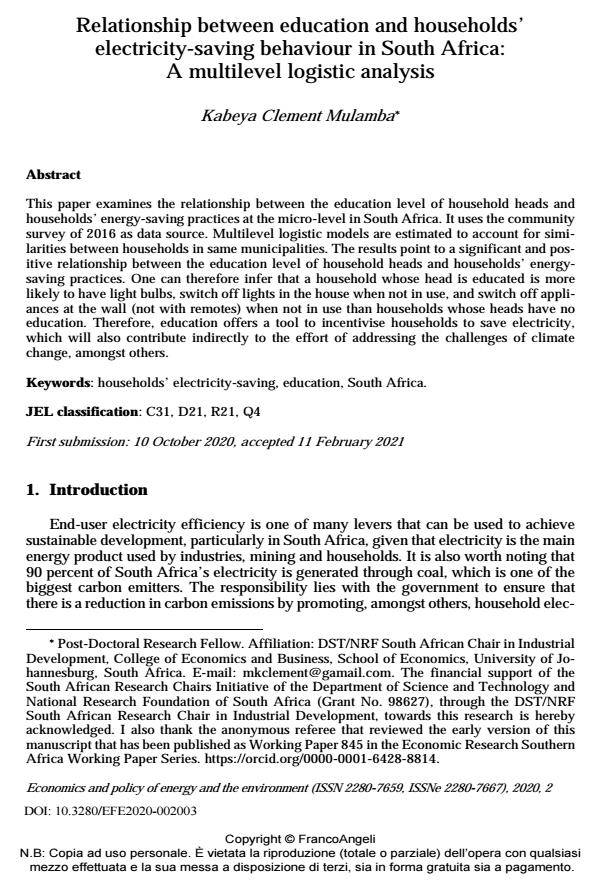Relationship between education and households’ electricity-saving behaviour in South Africa: A multilevel logistic analysis
Journal title ECONOMICS AND POLICY OF ENERGY AND THE ENVIRONMENT
Author/s Kabeya Clement Mulamba
Publishing Year 2021 Issue 2020/2
Language English Pages 24 P. 51-74 File size 471 KB
DOI 10.3280/EFE2020-002003
DOI is like a bar code for intellectual property: to have more infomation
click here
Below, you can see the article first page
If you want to buy this article in PDF format, you can do it, following the instructions to buy download credits

FrancoAngeli is member of Publishers International Linking Association, Inc (PILA), a not-for-profit association which run the CrossRef service enabling links to and from online scholarly content.
This paper examines the relationship between the education level of household heads and households’ energy-saving practices at the micro-level in South Africa. It uses the community survey of 2016 as data source. Multilevel logistic models are estimated to account for similari-ties between households in same municipalities. The results point to a significant and positive relationship between the education level of household heads and households’ energy-saving practices. One can therefore infer that a household whose head is educated is more likely to have light bulbs, switch off lights in the house when not in use, and switch off appliances at the wall (not with remotes) when not in use than households whose heads have no education. Therefore, education offers a tool to incentivise households to save electricity, which will also contribute indirectly to the effort of addressing the challenges of climate change, amongst oth-ers.
Keywords: Households’ electricity-saving, education, South Africa.
Jel codes: C31, D21, R21, Q4
Kabeya Clement Mulamba, Relationship between education and households’ electricity-saving behaviour in South Africa: A multilevel logistic analysis in "ECONOMICS AND POLICY OF ENERGY AND THE ENVIRONMENT" 2/2020, pp 51-74, DOI: 10.3280/EFE2020-002003